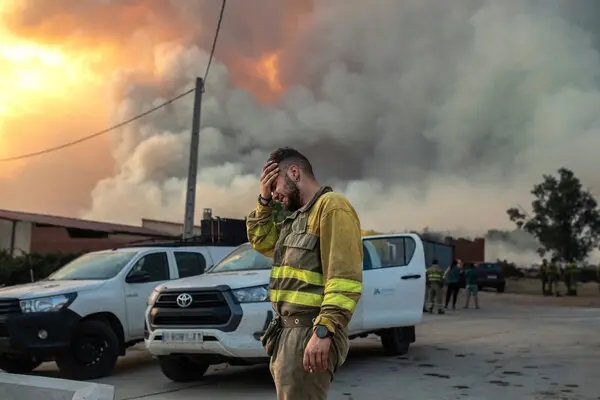A new study has concluded that a recent record-breaking heatwave in Europe caused 1,500 more deaths than would have occurred without the influence of climate change.
World Weather Attribution, an academic collaboration studying extreme event attribution, found that human-driven climate change tripled the number of heat-related deaths, as it increased heatwave temperatures up to 4C across a dozen cities.
Heat is extremely dangerous for humans as it compromises physiological processes meant to keep the body cool. Stress on human bodies caused by heat prevents normal daily activities and our ability to cool down properly. Areas that generally have more humidity can also put lives at risk. Sweat helps our bodies cool off, but humidity changes the way sweat evaporates from the body.
And not being able to cool down puts people’s health at risk, and can lead to increased cardiovascular and respiratory complications, dehydration, heatstroke, higher blood pressure, and sleep deprivation. Some of these conditions can be deadly if not treated promptly.
Read also: Drille, others to perform at Abuja climate change concert
While no one is truly immune to extreme heat, factors such as age and health condition, as well as exposure variables including occupation and socio-economic circumstances, can increase an individual’s vulnerability. Studies show that women – particularly pregnant women, children, and the elderly are especially at risk of developing severe heat-related symptoms.
Researchers from Imperial College London and the London School of Hygiene & Tropical Medicine focused on data from June 23 to July 2 and 12 European cities in Italy, Spain, Portugal, France, the UK, Greece, Croatia, and Hungary.
2,300 heat-related deaths were recorded during the 10-day period. Of these, 1,500 – or 65% – would not have happened if climate change had not intensified the heatwave, they concluded.
It will be recalled that month’s heatwave disproportionately affected these vulnerable categories, the World Weather Attribution study showed, with people aged 65 and over making up some 88% of the excess deaths.
Story was adapted from Earth.org.
